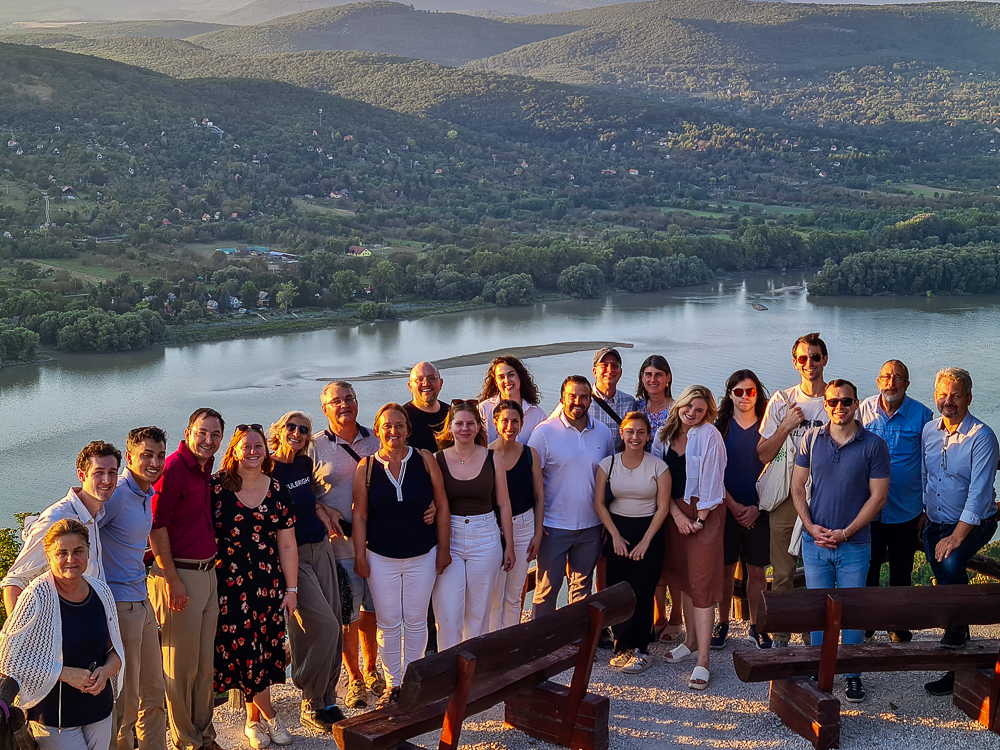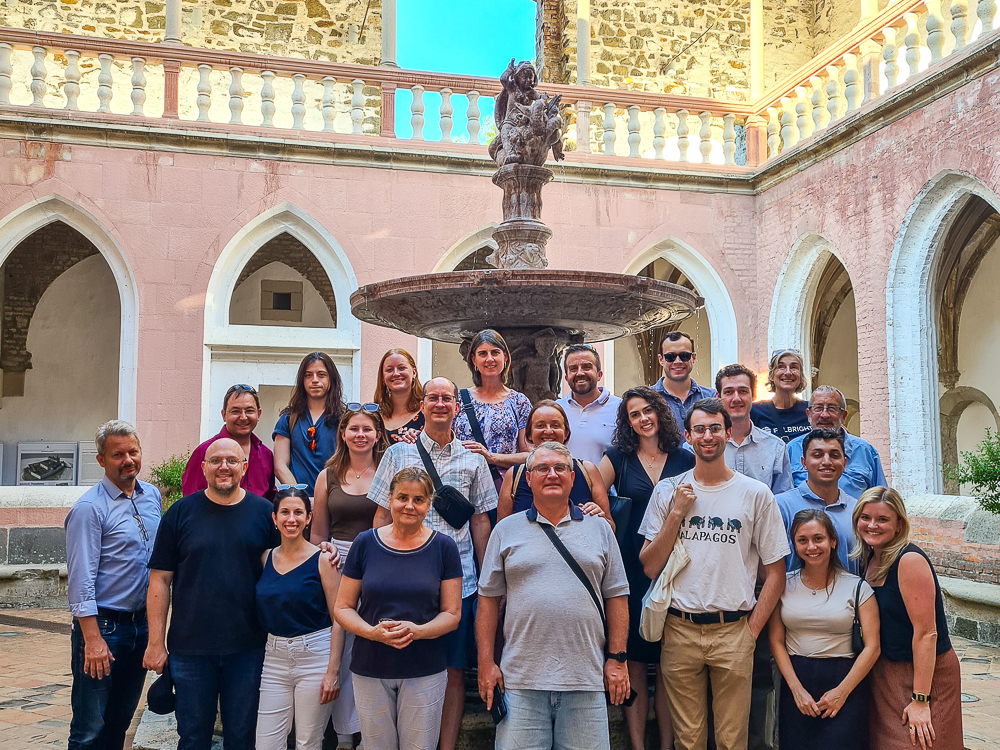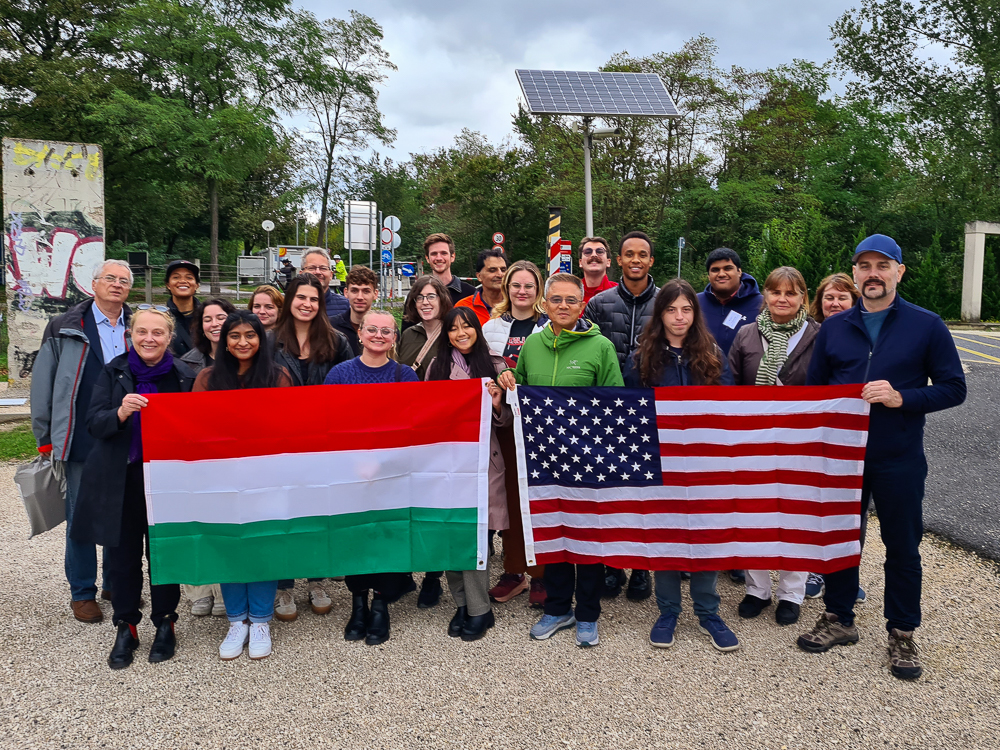Laszlo Orszagh Distinguished Award in American Studies
Hungary
Number of recipients
In addition to being a prestigious academic exchange program, the Fulbright Program is designed to expand and strengthen relationships between the people of the United States and citizens of other nations and to promote international understanding and cooperation. To support this mission, Fulbright Scholars may be asked to give public talks, mentor students, and otherwise engage with the host community, in addition to their primary activities.
Teach one lecture or seminar course per semester (three hours per week) at undergraduate and/or graduate levels. Scholar may also offer short-term courses for Hungarian faculty and assist in curriculum development. Additional activities will vary, depending on the host institution and the scholar's interest, but may include advising students, overseeing student research and thesis work, participating in departmental research projects, doing outreach in the local community, meeting Hungarian Fulbright alumni, or giving a talk at one or two of the American Corners in Hungary.
Scholars are strongly encouraged to also offer presentations at other Hungarian universities, preferably with a Study of the United States program.
One of the Hungarian universities with a strong Study of the United States program:
- Eötvös Loránd University, Budapest
- University of Debrecen
- University of Szeged
- University of Pécs
- University of Pannonia, Veszprem
- Pázmány Péter Catholic University, Budapest
- Károli Gáspár University of the Hungarian Reformed Church, Budapest
Eszterházy Károly Catholic University, Eger
Applicants are encouraged to contact the Fulbright Commission for a host institution recommendation unless they already have a specific university in mind.
Applications will be accepted from any of the disciplines under American Studies, including but not limited to: history, art history, philosophy, literature, culture, ethnic studies, political science, sociology and religious studies.



All applicants must meet the Program eligibility requirements (click to review the requirements).
Teaching will be in English; additional language proficiency not required.
Associate or Full Professor level with at least ten years of graduate teaching experience is preferred; experience in supervising Ph.D. theses is desirable.
Stipend $5,500 per month.
Appr. $530 (HUF 200,000) per month local currency allowance.
The USD amount is subject to small exchange rate fluctuations. Average exchange rate: USD 1 = HUF 375
Reimbursement of actual cost of direct, most economical round-trip airfare for grantees up to $2,000.
Allowance of $100 per month for one dependent and $200 per month for two or more dependents.
Dependent travel allowance of $500 for one dependent and $1,000 for two or more dependents.
Dependents are welcome to participate in the in-country orientation program and in monthly cultural enrichment programs organized by the Fulbright Commission in Hungary.
Dependents must accompany the grantee for at least 80% of the period abroad and a minimum of one semester in order to qualify for additional dependent benefits. Dependent benefits are not provided to Flex grantees.
- Cost of living in Hungary is on average about 30% lower than in the United States.
- Depending on the size and quality of the apartment, housing in downtown Budapest ranges between $600-$1,200 per month.
- Utilities, internet connection, and building maintenance fees average about $150 per month; but could be included in the rent.
- Housing and living costs in smaller cities could be somewhat lower.
- Groceries for one person could typically cost between $200-250 per month. Eating out per meal costs approximately $15-30.
- In-country travel costs: monthly Budapest travel pass (unlimited travel on all means of public transportation): $25, a round-trip train ticket between Budapest and another major city: $20-25
- A museum admission ticket is between $10-20, concert tickets (good seats) are between $15-30, opera tickets are more expensive
- Cost of living in Hungary according to: Numbeo Website; Expatistan Website (prices in Hungarian currency, average exchange rate: USD 1 = HUF 375)
Assistance with finding housing will be provided.
Final grant amounts will be determined prior to the start of the academic year and are subject to the availability of funds. The United States Department of State and the Fulbright Commission in the host country reserve the right to alter, without notice, participating countries, number of awards and allowances.
Hungary
Hungary is a welcoming country that boasts rich cultural and educational traditions. Because the country has historically been the crossroads to many different cultures, our Fulbrighters will be able to witness these influences first hand. From Roman, Romanesque, medieval and neoclassical architecture, Turkish mosques and spas, an abundant art and music presence, and the diverse cuisine; there is sure to be something to intrigue everyone.
The Hungarian higher education system is part of the European Higher Education Area. The country has many well-known universities and research institutions with strong international connections, joint programs, and many international students. The Fulbright Program enjoys high prestige. The Fulbright Commission in Budapest offers grantees thorough assistance with finding housing and with their entry visa/residence permit application. The Commission organizes an extensive four-day orientation program for the newly arrived U.S. grantees. The orientation program provides an overview of Hungarian history, culture, and introduces grantees to current academic, political and practical issues. All through the grant period, grantees are regularly invited to participate in cultural enrichment programs. These monthly meetings, trips, cultural events and conferences offer interesting insights into Hungarian culture and different kinds of institutions, and also foster team spirit among grantees. The Fulbright Commission in Hungary pays special attention to grantees with families, welcoming spouses and children too. Dependents can choose from the numerous cultural opportunities (museums, galleries, musical events, libraries, programs for children, volunteer opportunities) all Hungarian cities offer. Medical care is extensive. Doctors are well-trained. Grantees and dependents can use the services of state-run medical institutions or private English-language clinics.
Public transportation in the capital city is extensive and inexpensive: buses, trams, metro cars, trolley buses, suburban trains run frequently. The network of intercity trains and buses offer good service to cities in the countryside.
The academic year is from September to June. Semesters are four months in length. The fall semester starts in September, the spring semester in February. English language is sufficient for teaching and research in all fields. Over 700 study programs in English and other foreign languages are offered by Hungarian higher education institutions, see Study in Hungary.
Applications are welcome in all fields. Please see specific awards for areas of interest. Dual affiliations may be possible.
English language schools (pre-K-12) are located in Budapest only. In major cities, there are dual-language high schools where specific subjects are taught in English.
For more information about working and living in Hungary, please visit the following links:
Choose Hungary: Why was Hungary your destination?
What did you achieve thanks to Fulbright?
Testimonials of former U.S. grantees to Hungary
Recent Fulbright U.S. Scholar alumni available for reference:
Delia DeBuc (research) dcabrera2@med.miami.edu
Cleopatra Charles (teaching) cleopatra.charles@rutgers.edu
Scott Frisch (teaching/research) Scott.Frisch@csuci.edu
Prospective applicants may contact the Hungarian-American Fulbright Commission for Educational Exchange for advice or for further information:
Dr. Károly Jókay, Executive Director, email: director@fulbright.hu
Annamária Sas, American Program Officer, email: sas@fulbright.hu
Website: www.fulbright.hu
Visit our Scholar Directory to view and search all Fulbright alumni. You can also learn more about Fulbright Alumni Ambassadors.

In case the applicant has no letter of invitation, the Fulbright Commission in Hungary will consider placement at one of the following universities:
Eszterházy Károly Catholic University